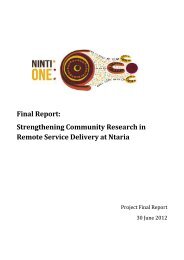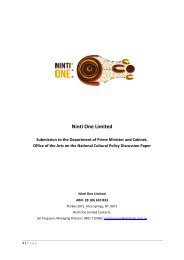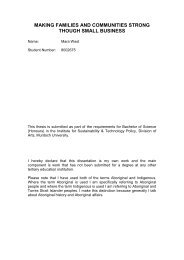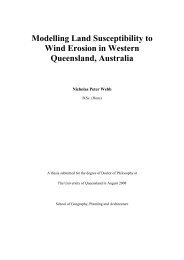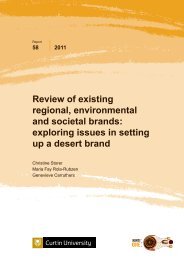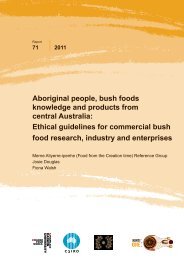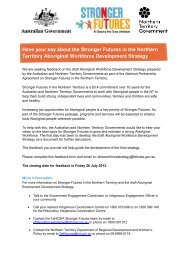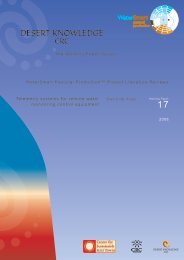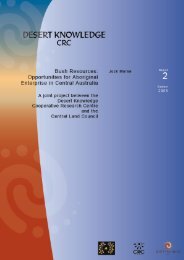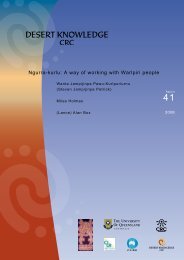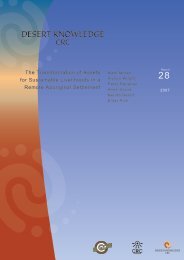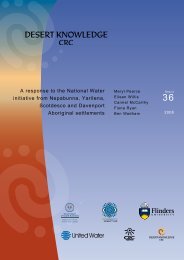What is Free Prior Informed consent?
What is Free Prior Informed consent? - CRC-REP
What is Free Prior Informed consent? - CRC-REP
Create successful ePaper yourself
Turn your PDF publications into a flip-book with our unique Google optimized e-Paper software.
and sign. If a form <strong>is</strong>n’t offered, then research participants can ask for one. Th<strong>is</strong> form <strong>is</strong> called a<strong>Free</strong> <strong>Prior</strong> <strong>Informed</strong> Consent form. It should explain something about the research, talk aboutconfidentiality (see Briefing Paper No. 8) and describe how the participant or research collaboratorwill benefit from the research. Th<strong>is</strong> benefit might be both for the individual, through payment forresearch ass<strong>is</strong>tance, and more broadly for the community, as the research may ass<strong>is</strong>t in developinggood policy, for instance.The researcher has an obligation to ensure that the research participants are informed about whythe research <strong>is</strong> happening in their community, why their participation <strong>is</strong> sought and what the benefitsare to them and to the community.Consent <strong>is</strong> when the research participant says ‘yes’ to participating in the research. However, th<strong>is</strong>doesn’t mean that research participants can’t later say ‘no’, and ask the researcher/s to leave if theyare unhappy with how the researcher <strong>is</strong> working with them or the community. They may w<strong>is</strong>h torenegotiate the terms and conditions of the project, or seek more details about aspects of theresearch (such as how, and in what forms the research results will be made available and for whatpurposes). Consent can be withdrawn or changed at any time during the research. In th<strong>is</strong> way,<strong>consent</strong> <strong>is</strong> ongoing for the life of the project, as a process, and <strong>is</strong> not a one-off event that occurswhen research participants sign a form.How prior informed <strong>consent</strong> works for the rights of Aboriginal and Torres Strait IslanderpeopleIn setting out to develop any research or development project, there <strong>is</strong> often a protocol oragreement that <strong>is</strong> signed by the major parties to the research (these parties might cons<strong>is</strong>t of thelocal council or Aboriginal or Torres Strait Islander representative body, Aboriginal or Torres StraitIslander researchers and university researchers). Aboriginal and Torres Strait Islander people needto make sure they are equal partners at all stages in the negotiation processes.Aboriginal and Torres Strait Islander people also need to make sure that they have their rights tofree, prior informed <strong>consent</strong> recogn<strong>is</strong>ed and upheld in the contracts and agreements. A goodcontract or agreement will contain prov<strong>is</strong>ions setting out, in detail, the rights, responsibilities andobligations to ensure Aboriginal and Torres Strait Islander people maintain their full and effectiverights to participation, negotiation, and dec<strong>is</strong>ion making at all stages and levels in the project.Selected referencesAustralian Institute of Aboriginal and Torres Strait Islander Studies. 2011. Guidelines for EthicalResearch in Indigenous Studies. Australian Institute of Aboriginal and Torres Strait IslanderStudies. Canberra.Page 2



